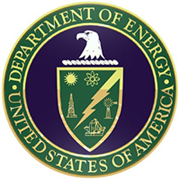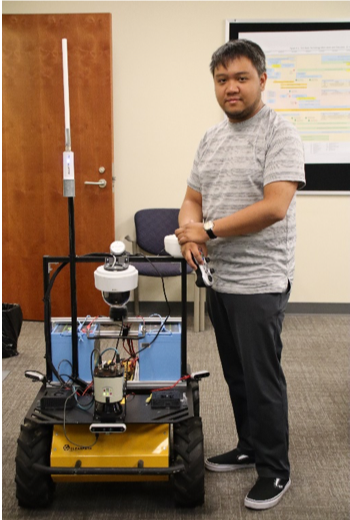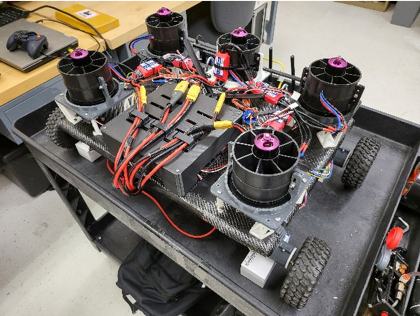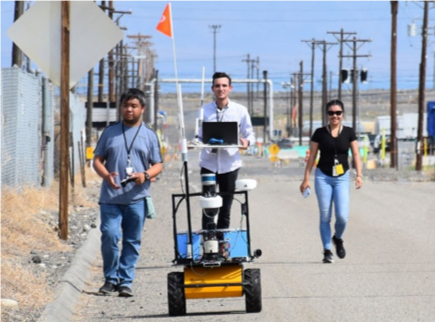DOE Fellows Jeff Natividad accepted a Mechanical Engineer position with Washington River Protection Solutions (WRPS), the Tank Operations Contractor for the U.S. Department of Energy (DOE) Office of River Protection subcontractor. Jeff joined Florida International University’s Applied Research Center (FIU-ARC) as a DOE Fellow in 2019 during his undergraduate mechanical engineering degree. Since then, Jeff has been part of ARC’s Applied Robotics Laboratory and worked on development of a surface-climbing robot for the application of concrete fixatives within SRNL’s H-Canyon Exhaust Tunnel. He also participated in three internships – two at Washington River Protection Solutions (WRPS) at the Hanford site, and one at United Cleanup Oak Ridge (UCOR) at the Oak Ridge site. Jeff will join WRPS at the end of his current internship with UCOR in August 2022.
“My experience with the DOE Fellows program started when I was nearing graduation from undergraduate studies at FIU back in the spring of 2019. I honestly wasn’t the most active student when it came to participating in extracurriculars, let alone searching and applying for jobs and internships. By chance, I had a friend of mine working in the robotics lab at the time and they suggested that I should apply for the program. At first, I was honestly a little bit puzzled – I had heard of the DOE before, and I knew it was a big name, but I did not understand how what I had learned and was studying could apply.
That air of uncertainty was cleared up quickly – once I got hired at the robotics lab as a DOE Fellow, it quickly became clear that I had found an unexpected home. I was assigned to projects that had concepts I was already familiar with – robotics. Throughout high school, I had been heavily involved in robotics competitions. This involvement fueled my passion for finding a space in research and development for robotic applications. What I didn’t know was that the DOE was a prime customer for evolving technologies.
That’s how I ended up working on my cornerstone project as a DOE Fellow – the development of a surface-climbing robot for the application of concrete fixatives within SRNL’s H-Canyon Exhaust Tunnel. With this project, I was able to apply, reinforce, and build upon essential skills that I had brought with me to the table – skills such as CAD modeling, rapid prototyping, 3D printing, programming, test design and execution, and circuit development. These skills and experiences have been pivotal in assisting with other projects that I’ve had the opportunity to participate in, such as the 3-inch pipe crawler for use at the Hanford site.
The DOE Fellows program also opened a lot of doors for me, both at the interpersonal level (amongst peers, mentors, and colleagues) and at the career level. The quality of the mentorship and guidance at the program is top-notch, and that gets clearly reflected in how my peers and colleagues interacted with each other daily – whether it be hallway chats or while tackling complex problems. With a synergistic environment present, we were all allowed to flourish while banding together to create a product that could – and would – tackle environmental management tasks at the DOE sites.
During my time with the program, I was given the chance to participate at the Waste Management Symposia where I was able to present my work on the surface-climbing robot, as well as my findings from my first internship. I’ve also had the opportunity to co-author multiple papers regarding the different robotics projects I was involved in. The ability to participate in conferences (WMS and other conferences) helped develop my professional soft skills.
The internship matching and internship program that the DOE Fellowship offers also really helps place students at DOE sites that suit their skills and developmental needs. As a DOE Fellow, I have had the amazing opportunity to participate in three internships – two at Washington River Protection Solutions (WRPS) at the Hanford site, and one at United Cleanup Oak Ridge (UCOR) at the Oak Ridge site. These internships have provided me with exposure and experience to the sides of engineering that I otherwise wouldn’t have come across in a classroom environment.
At WRPS, I learned the importance of stakeholder relationships and the resource-limited side of robotics development, amongst other soft interpersonal skills. For example, I had the chance to validate the autonomous navigation capability of a commercial robotic platform for use at the Hanford tank farms while authoring a repair guide to assist in routine maintenance for the platform. In the following internship, I was able to support a team in the development of an autonomous robotic radiation mapping platform.
At UCOR, I moved away from the theoretical landscape of robotics development and was involved with more boots-on-the-ground work. Amongst these tasks as an engineer, I participated in a multitude of walkdowns of several ORNL campus buildings under the UCOR umbrella which provided an interactive idea exchange between a multidisciplinary team working towards the deconstruction of hazardous facilities. I also dove into the development of system diagrams and schematics for different filtration systems at the Oak Ridge site and was exposed to the procurement processes for selected equipment.
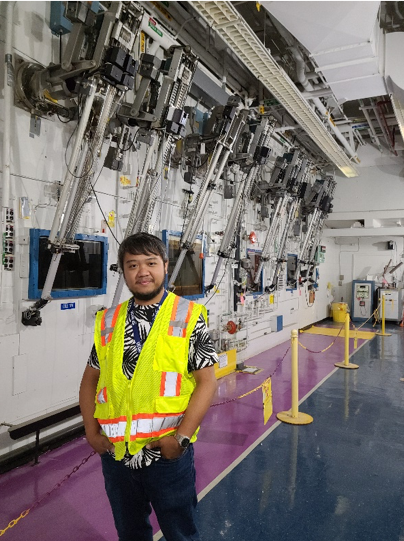
Figure 4: Jeff touring the manipulator gallery at ORNL’s Fission Products Pilot Plant (Building 3517)
Overall, the DOE Fellows program has been fundamental in the development of my career path, providing opportunities to expand and grow my skills as part of the workforce pipeline for the DOE. All the fundamental engineering skills that I have been able to learn and apply, alongside the soft skills that I was able to practice and improve upon, are major takeaways from my time with the program and are aspects that I will carry with me into my new full-time position at WRPS as a mechanical engineer.”
